As consumers, we often pay close attention to the ingredients in our food, but we often neglect to do the same when it comes to our personal care products. Shampoo is one such product that we use regularly, yet we may not be aware of the potentially harmful ingredients that are found in many popular brands. In this blog, we will be discussing 9 harmful ingredients that you should avoid in your shampoo, and also providing tips on how to choose a shampoo that is free from these harmful chemicals.
Harmful ingredients in shampoo
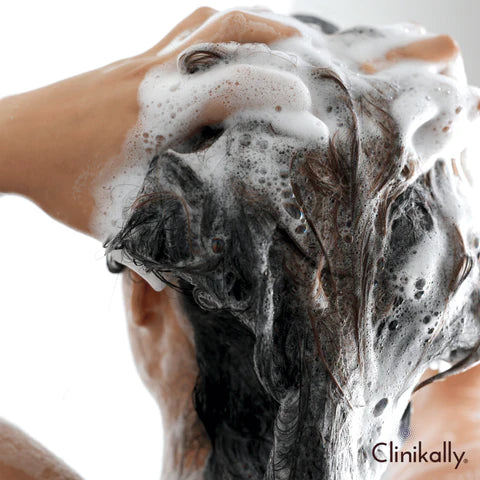
Shampoos, like many personal care products, may contain ingredients that are considered harmful or may cause adverse effects in some people. Here are a few common shampoo ingredients that some people may find concerning:
-
Sulphates (SLS/SLES): Surfactants such as Sodium Lauryl Sulphate (SLS) and Sodium Laureth Sulphate (SLES) create lather and effectively remove dirt and oil from the hair. However, they can strip the hair of its natural oils, causing dryness and potential scalp irritation in some people, particularly those with sensitive or dry scalp conditions.
-
Parabens: Parabens, which include methylparaben, ethylparaben, propylparaben, and butylparaben, are preservatives used in shampoos and other personal care products to prevent microbial growth. Some people may avoid parabens because they are concerned about possible hormonal effects and skin sensitivities.
-
Silicones: While silicones such as dimethicone can provide smoothness and shine to the hair, they can also build up over time, causing product buildup and potentially weighing the hair down. This may necessitate the use of harsher shampoos to remove the buildup, resulting in an over-cleaning cycle.
-
Fragrances: Synthetic fragrances added to shampoos can cause allergic reactions or sensitivities in some people. In many products, fragrance mixtures are considered trade secrets, making it difficult to identify specific allergens.
-
Phthalates: Some shampoos may contain phthalates, which are used to extend the life of fragrances. They have been linked to potential health concerns and are avoided by some due to their potential hormonal effects.
-
Preservatives that release formaldehyde: Preservatives such as DMDM hydantoin, imidazolidinyl urea, and quaternium-15 release small amounts of formaldehyde over time to prevent microbial growth. Some people may experience irritation or allergic reactions when exposed to formaldehyde-releasing agents.
-
Artificial Colours: Synthetic dyes or colourants used in shampoos have the potential to cause skin irritation or allergies in sensitive individuals.
It's crucial to remember that each individual may react differently to these components. While some people may be unaffected by these elements, others may be allergic to or sensitive to specific ones. Selecting shampoos with the labels "fragrance-free," "paraben-free," or "sulfate-free" will help you stay away from some potentially dangerous substances. Additionally, consumers looking for more delicate formulations may decide to choose products with natural or plant-based ingredients. Patch tests and dermatologist consultations can also help determine a person's sensitivity and choose products for healthier hair care regimens.
Harmful ingredients in hair products
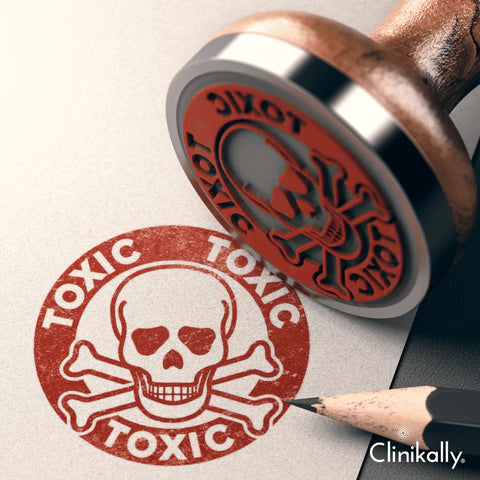
Harmful ingredients are not limited to shampoo; they can also be found in other hair products, such as conditioners and hair dyes. It's important to check the ingredients of all the hair products you use to ensure that you are not exposing yourself to harmful chemicals.
Ingredients to avoid in shampoo for coloured hair
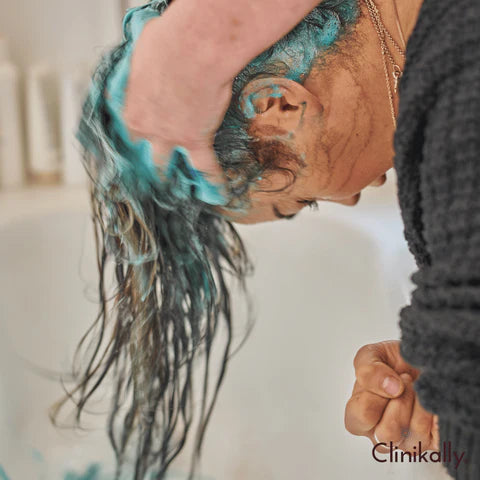
Selecting shampoos that are mild and designed to preserve the brilliance and longevity of colour is crucial for coloured hair. The following components should not be found in shampoos for coloured hair:
-
Sulphates, as they can strip hair colour and cause dryness.
-
Phthalates, as they can damage the hair and scalp.
-
Silicones, as they can build up on the hair and scalp, causing dryness and irritation.
Consider using products made especially for color-treated or dyed hair when choosing a shampoo for coloured hair. These shampoos frequently include chemicals that hydrate hair, prevent colour fading or damage, and help preserve colour vibrancy. You may prolong the brilliance and life of your hair colour by reading product labels and selecting formulas that are mild, color-safe, or sulfate-free specifically designed for coloured hair.
Sulfates and their effects on hair health
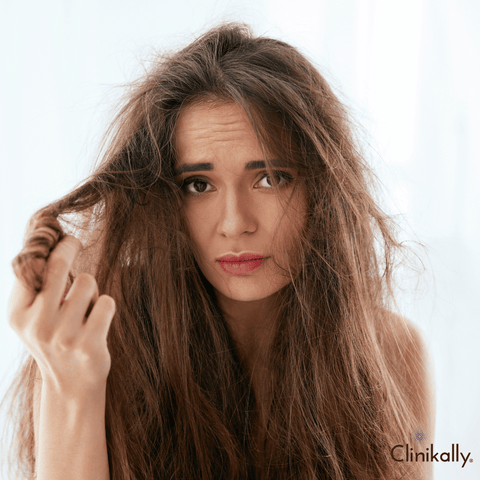
Sulfates are surfactants that are widely used in personal care and cleaning products such as shampoos, soaps, and cleansers. They act as cleansing agents, lathering up and effectively removing dirt, oil, and impurities from the hair and scalp. Sodium lauryl Sulfates (SLS) and sodium laureth Sulfates (SLES) are the two most common sulphates found in hair care products. While Sulfates effectively cleanse the hair, they may have the following negative effects on hair health:
-
Sulfates are strong detergents that can strip the hair of its natural oils. While removing excess oil is beneficial for those with oily hair, it can cause dryness and make hair more susceptible to breakage, particularly for those with naturally dry or curly hair.
-
Sulfates may cause scalp irritation or sensitivity in some people. This can cause itching, redness, or flakiness, especially in people with sensitive skin or scalp conditions like eczema or dermatitis.
-
Sulfates have the potential to strip hair colour or treatments, causing them to fade faster. Sulfate-free products are frequently recommended for color-treated hair to maintain the vibrancy and longevity of the colour.
-
Hair that is frequently exposed to sulphates may become dry, brittle, and frizzy. This can lead to increased tangles and difficulty managing the hair.
-
The use of sulphates regularly can weaken the hair shaft over time, making it more susceptible to damage and breakage. This effect is more noticeable in people who have fragile or chemically treated hair.
It is important to note, however, that not everyone is adversely affected by Sulfates. Some people may use sulfate-containing products without notable issues, especially if they have normal or oily hair types that benefit from thorough cleansing. Sulfate-free alternatives are available on the market for those concerned about the potential negative effects of sulphates. Shampoos without sulphur use natural ingredients or softer cleaning agents to clean hair without overly irritating or drying it out. If your hair is color-treated, sensitive, or dry, or if you want to stay away from harsh detergents in your hair care routine, these products might be a better fit. In the end, the type of hair, the health of the scalp, and the personal preferences of each individual should guide the selection of hair care products, including shampoos. Finding the best product to maintain hair health and achieve desired results can be done by experimenting with various options, including sulfate-free options.
Parabens and potential scalp harm
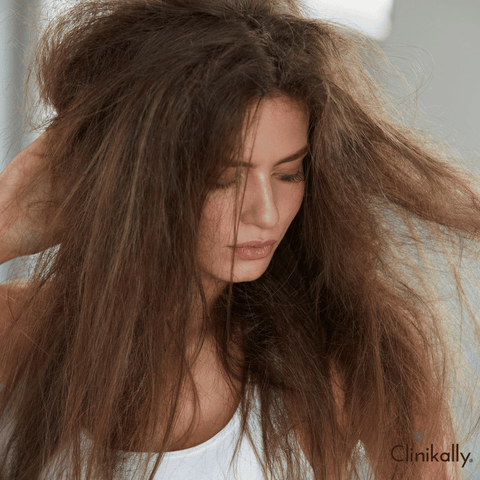
Parabens are preservatives that are commonly used in personal care products such as shampoos, conditioners, skincare products, and cosmetics to prevent the growth of bacteria, fungi, and mould. They assist in extending the shelf life of these products. While regulatory bodies such as the FDA (U.S. Food and Drug Administration) and the EU Scientific Committee on Consumer Safety (SCCS) have deemed parabens safe for use in cosmetics and personal care products within specific concentration limits, there has been some concern about their potential health effects due to their ability to mimic oestrogen. In terms of their potential effect on the scalp:
-
Irritation: Some people may experience scalp irritation or sensitivity as a result of paraben-containing products. This can appear as redness, itching, dryness, or flakiness on the scalp.
-
Allergic Reactions: Parabens can also cause allergic reactions in some people. This can cause contact dermatitis, which is characterised by red, itchy, or swollen skin and, in some cases, a scalp rash.
-
Scalp Microbiome Disruption: Parabens' antimicrobial properties have the potential to disrupt the natural balance of the scalp microbiome, affecting beneficial microorganisms that contribute to scalp health.
-
Concerns about Absorption and Systemic Effects: There have been discussions about parabens' ability to penetrate the skin and whether prolonged use could lead to accumulation in the body, raising concerns about potential hormonal disruption. More research is needed, however, to fully understand the extent of systemic effects from topical paraben application.
If you have a sensitive scalp or are concerned about the effects of parabens, you should use paraben-free or preservative-free hair care products. Many brands offer formulations that do not contain parabens and instead rely on alternative preservatives or natural ingredients to keep their products fresh. It is noteworthy that although parabens have been scrutinised, scientific research and regulatory bodies have backed their safety when used at specified concentrations. However, individuals with known sensitivities or specific concerns may opt for products that do not contain parabens or consult a dermatologist for personalized recommendations based on their scalp condition and sensitivities.
How to choose a shampoo without harmful ingredients
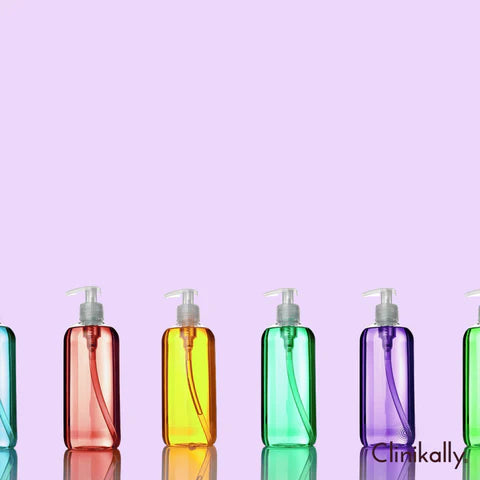
Check the ingredient list or use a shampoo ingredient checker. Before you try any new hair care product for dandruff or hair fall it is always best to consult a dermatologist, who can look into your scalp and hair condition and recommend the right shampoo or conditioner suitable for you. You can now consult a doctor online without having to wait for 2-3 months to book an appointment with seamless & affordable online dermatologist consultation at Clinikally, and get personalized treatment plan delivered directly to your doorstep.
-
Look for shampoos that are labelled as "organic" or "natural" as they are less likely to contain these harmful ingredients.
-
Avoid shampoos that contain sulphates, parabens, phthalates, synthetic fragrances, formaldehyde, silicones, propylene glycol, PEG compounds.
Recall that different people may react differently to the same components. Patch testing or gradually introducing new goods may aid in detecting any sensitivity or allergic reaction. You can choose a shampoo that supports your hair care objectives and stays away from potentially harmful substances by taking into account your hair type, scalp condition, and personal preferences.
Shampoo without harmful chemicals
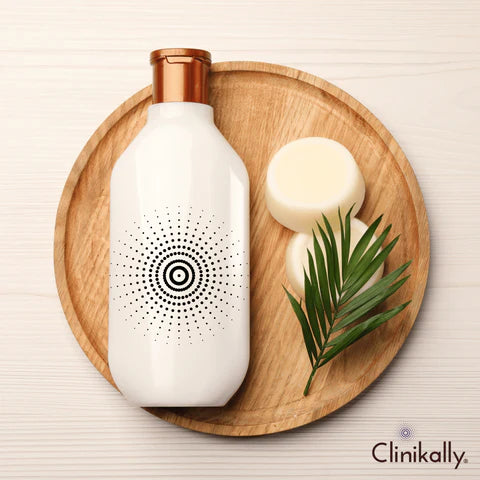
Many shampoos available today are made without any potentially dangerous ingredients, making them appealing to people looking for natural or cleaner hair care solutions. The following is a list of companies that sell shampoos devoid of specific dangerous chemicals:
-
There are many shampoos available on the market that are free from harmful chemicals. These shampoos often use natural ingredients, such as essential oils and herbs, to cleanse and nourish the hair and scalp.
-
You can also opt for shampoos that are specifically formulated for coloured hair, as they are less likely to contain harsh chemicals that can damage or fade hair colour.
-
When shopping for a shampoo without harmful chemicals, it's important to read the ingredient list carefully and be aware of the harmful ingredients that we discussed earlier in this blog.
When choosing a chemical-free shampoo, make sure the components don't include anything you don't want them to, and carefully check product labels to make sure. Further confirmation of a product's cleaner formulation can be obtained by looking for certifications such as USDA Organic, EWG Verified, or Cruelty-Free.
Shampoo ingredient checker

There are various shampoo ingredient checkers available online; you can use them to check the ingredients of your shampoo and see if it contains any harmful chemicals. It's important to learn about and comprehend the context of ingredient safety ratings when using these tools. Individual sensitivities can differ, and assessments of some components may be inconclusive. Always verify the information by cross-referencing it with other sources, and if you have particular questions or concerns about your skin, think about seeing a dermatologist or skincare specialist.
Natural alternatives to common harmful ingredients
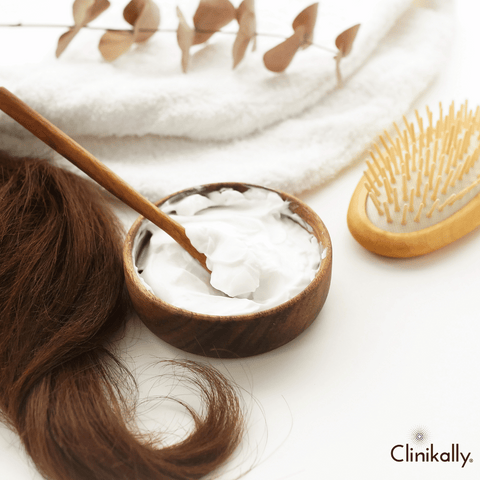
There are several natural alternatives to commonly used synthetic or potentially harmful ingredients in personal care products. Here are a couple of examples:
-
Preservatives (Parabens): Natural preservatives such as grapefruit seed extract, rosemary extract, neem oil, and vitamin E can be used in formulations to inhibit microbial growth and increase product shelf life.
-
Surfactants (sulfate): Mild surfactants derived from natural sources, such as coconut-derived sodium coco sulfate or sodium lauroyl sarcosinate, are gentler on the skin and hair than sulfate.
-
Fragrances and Essential Oils: Essential oils such as lavender, tea tree, rose, or chamomile can be used to add natural scents to products instead of synthetic fragrances that may cause sensitivities.
-
Emollients and Moisturizers: Natural oils that provide hydration to the skin and hair, such as coconut oil, jojoba oil, argan oil, shea butter, cocoa butter, and almond oil, are excellent alternatives to synthetic emollients and moisturisers.
-
Antioxidants and Preservative Boosters: Natural antioxidants such as vitamin E, rosemary extract, and green tea extract can act as preservative boosters, increasing product stability and shelf life while providing antioxidant benefits to the skin.
-
Thickeners and stabilisers: Natural ingredients such as aloe vera gel, xanthan gum (derived from sugar fermentation), guar gum, or arrowroot powder can be used as thickeners or stabilisers in formulations.
-
Colorants: Plant-based colourants like henna, beetroot extract, turmeric, or spirulina can add natural colour to cosmetic products instead of synthetic dyes.
-
pH Adjusters: Natural ingredients like citric acid (derived from citrus fruits) or apple cider vinegar can be used to adjust the pH of formulations.
-
Antimicrobial Agents: Essential oils with antimicrobial properties, such as tea tree oil or thyme oil, can be used as natural alternatives to synthetic antimicrobial agents.
Individual sensitivity and allergy considerations are crucial when selecting natural alternatives. Certain people may still experience responses from some natural components. Patch-testing new items or chemicals on a small section of skin can help identify potential allergic reactions or sensitivities. Additionally, choosing formulas that meet specific tastes and skin needs can be aided by looking for goods recognised by reputable organisations or by speaking with a dermatologist or skincare specialist.
Say goodbye to harmful ingredients for healthier hair
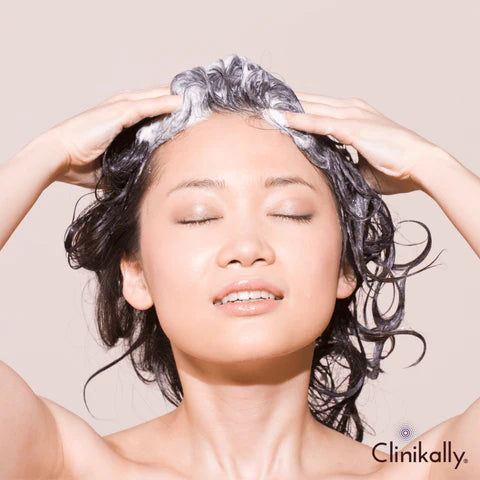
Choosing a shampoo that is free from harmful ingredients is crucial for maintaining the health of your hair and scalp. By avoiding the ingredients discussed in this blog, you can protect yourself from potential health concerns and have healthier, stronger hair. Remember to always read the ingredient list of your shampoo and other hair care products and to use a shampoo ingredient checker if you are unsure.
















